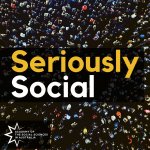Coronavirus has impacted our lives, economy and world in many ways. Tourism is an industry which has been tipped upside down due to the global pandemic. With borders closed, outbreaks on cruise ships, and international travel halted, how will we ever get back to how we were pre-pandemic?
Tourism expert and Professor at the University of Queensland’s Business School, Sara Dolnicar says that while we will not stop travelling, the way we travel is going to look a lot different looking into the future post-vaccine, and the tourism industry will need to reinvent itself. Here are 5 ways the tourism industry will change post-COVID-19.
- Hygiene procedures will stick around to avoid the prospect of another pandemic
Through the use of hand sanitiser, frequent handwashing and disinfectant, Coronavirus has seen an increase in cautiousness surrounding hygiene measures. Within the tourism sector, Professor Dolnicar predicts these types of procedures will stick around post-vaccine.
“In Hong Kong you might’ve seen that they already have a pod where a human walks in and gets full body sprayed and disinfected. They don’t use them for travelling at this point in time, but they may well,” she says.
Dolnicar believes we will be motivated to continue strict hygiene procedures in avoidance of another pandemic.
“It is the prospect of Covid-20 and 25 and 54, right? Suddenly as an industry we are aware that these things can happen anytime. And we understand the absolutely existential fatal consequences when it happens,” she says.
2. International flights will become a luxury, making travel unaffordable for most
New procedures and the cost of social distancing don’t come cheap, so it’s widely expected that price of travel will change.
“We might find ourselves in a time where if we do choose to travel internationally, it may become very, very expensive.
“Before Covid-19 we were talking about social tourism and how we would like to give everybody the opportunity to enjoy vacation. Suddenly, we may end up at the point where it’s becoming unaffordable for a large fraction of the population,” Dolnicar says.
3. Get ready to embrace domestic travel
As international travel becomes expensive, domestic travel will be our short-focus. As hotspots can arise quickly, domestic and intrastate travel will be traveller’s new focus.
“Because we have been locked up for two months now. We are desperate for a vacation.
“As soon as we’re allowed to travel between states again or between New Zealand and Australia, there will be immediate demand,” Dolnicar says.
4. The risk of the market will make Airbnb return to its roots
When travel ground to a halt, Airbnb bookings crashed. Investors with multiple properties pulled them off the market: freeing up more supply for locals, at least for now.
“The Mum & Pop houses will still be in business. They will still make their room available. But what about all those investors? They are suddenly thinking, “Well, hang on. There’s a lot more risk involved in this business than I knew,”Dolnicarsays.
She also says demand for hotels versus Airbnb’s will be dependent on personal preference, for whichever travellers feel most comfortable in terms of cleanness.
“Whether I perceive an Airbnb to be cleaner or a hotel is my personal decision,” she says
5. Tourism jobs will look different
As the pandemic hit, we saw airlines grounded and staff stood down, while supermarkets and call centres were desperate for more employees. In the future, tourism training will need to adapt.
“The current state of the sector is devastating.
“We need to train people to be really, really well trained for the service industry more broadly so that when these kinds of situations emerge, they have another home quickly and they’re just not unemployed in a queue,” Dolnicar says.

